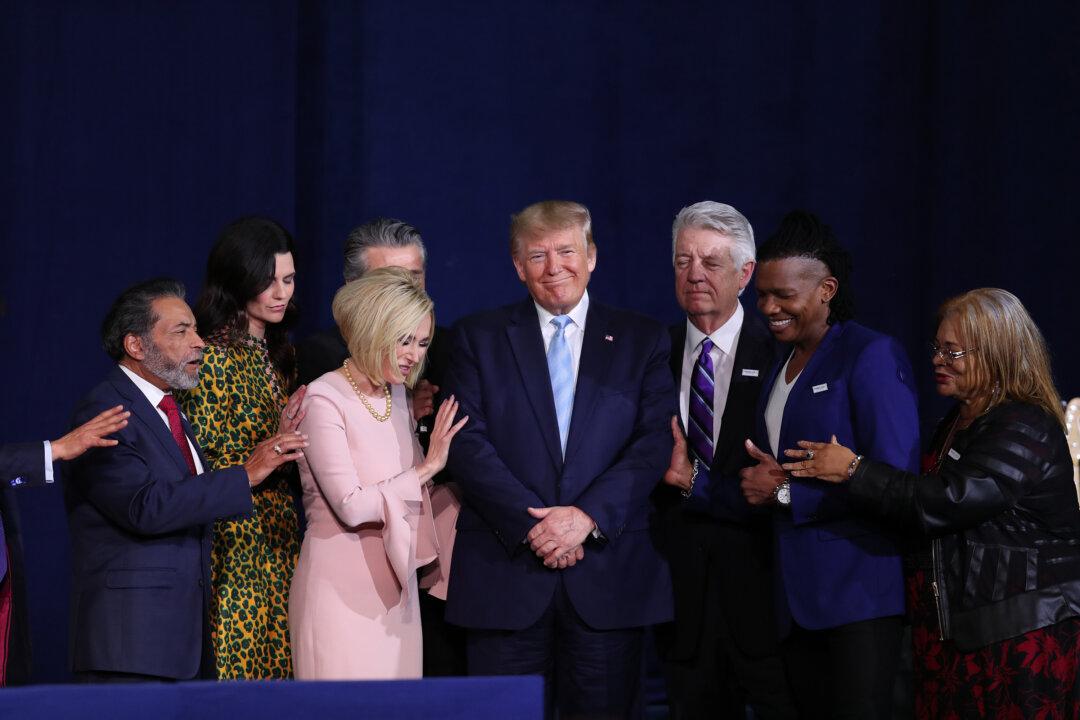When religious leaders and other evangelicals gathered Jan. 3 at a Miami-area megachurch for the Trump 2020 campaign’s first “Evangelicals for Trump” rally, they did so amid the threat of an IRS investigation of the congregation’s tax-exempt status.
President Donald Trump met with the group at the King Jesus International Ministry in suburban Miami. The Apostolic church, thought to be one of the largest Hispanic congregations in the United States, is led by Pastor Guillermo Maldonado.





